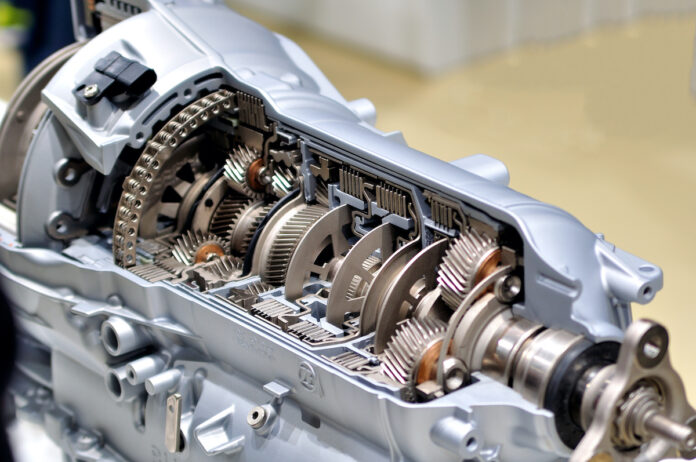
Gear oil, often overlooked, plays a pivotal role in ensuring the smooth operation of our beloved vehicles. It’s not just about lubrication; it’s about protection, performance, and longevity.
Yet, the world of gear oil is riddled with complexities, from viscosity grades to API ratings. This guide aims to shed light on these intricacies, offering car enthusiasts a comprehensive understanding of gear oil.
Understanding Gear Oil
At its core, gear oil is designed to lubricate, cool, and protect the gears within a vehicle’s transmission. While it might seem similar to engine oil or other lubricants, it is uniquely formulated to handle the high pressures and temperatures within gearboxes.
It prevents metal-to-metal contact, reduces wear, and ensures that gears mesh smoothly. Unlike other lubricants, gear oil must combat the challenges of shear stress and extreme conditions, making its role indispensable.
Types

Venture into the intricate domain of gear oils, and you’ll be introduced to a trio of primary types, each with its distinct characteristics:
- Mineral ─ Sourced directly from the heart of crude oil, this traditional choice has been the backbone of many vehicles for decades. Its cost-effectiveness makes it a popular choice for many. However, its performance might waver under extreme conditions, especially when compared to its synthetic counterparts.
- Synthetic ─ Born from rigorous scientific processes in labs, synthetic oils such as Can Am oil are the modern marvels of the lubrication world. They are tailored to deliver peak performance, especially when faced with high temperatures and pressures. Their longevity is commendable, but this comes at a premium price, often making car owners weigh their benefits against their cost.
- Semi-Synthetic ─ Bridging the gap between mineral and synthetic, semi-synthetic oils bring the best of both worlds. They strike a harmonious balance, offering enhanced performance without a hefty price tag.
The selection among these types isn’t black and white. It hinges on specific vehicle needs, driving conditions, and individual preferences.
Viscosity
Viscosity, often visualized as the ‘thickness’ of a fluid, plays a pivotal role in the world of gear oils. It’s the measure of a fluid’s resistance to flow. In the context of gear oil, viscosity becomes the defining factor of its protective capabilities. Oils with higher viscosity form a robust protective layer, guarding against wear and tear.
However, they might be too dense for certain applications, especially in colder climates. On the flip side, lower-viscosity oils flow more freely but might fall short in offering adequate protection, especially under strenuous conditions. Hence, choosing the right viscosity grade is an art, factoring in elements like regional climate, driving habits, and the vehicle’s design.
API and Ratings
The American Petroleum Institute (API) stands as the authoritative body setting benchmarks for gear oils. If you’ve ever observed labels like API GL-4 or GL-5 on gear oil packaging, you’ve encountered their standardized ratings.
These aren’t just random letters and numbers; they convey the oil’s performance capabilities and its compatibility with various gear systems. By decoding these ratings, users can make informed decisions, ensuring their vehicle gets the optimal lubrication it deserves.
Manual vs. Automatic Transmissions

The age-old debate of manual versus automatic transmissions isn’t just about driving preferences; it extends to their lubrication needs. Manual systems, with their direct gear engagement, often require products that possess specific frictional characteristics.
In contrast, automatic systems, with their intricate valve operations, might lean towards oils fortified with special additives, ensuring seamless gear shifts. Understanding the nuances of each transmission type and their lubrication demands is paramount for maintaining peak vehicle performance.
Limited Slip Differentials
Dive deeper into automotive mechanics, and you’ll encounter limited slip differentials (LSD) – ingenious devices that ensure even power distribution across wheels, optimizing traction. But LSDs are finicky when it comes to lubrication.
They demand gear oils infused with specific friction modifiers. These additives prevent undesirable behaviors like chattering, ensuring the LSD operates smoothly. Using an incompatible oil isn’t just a minor oversight; it can compromise the LSD’s functionality, underscoring the importance of meticulous selection.
Gear Oil Change Intervals
Every component of a vehicle has a lifecycle, and gear oil is no exception. Over its tenure, it battles contaminants, temperature fluctuations, and mechanical stresses, gradually losing its efficacy.
Factors like aggressive driving habits, frequent short trips, or even the inherent quality of the oil can influence its longevity. Regular inspections, coupled with timely oil changes, are the cornerstone of ensuring that the gears remain well-lubricated, minimizing wear and maximizing performance.
Signs of Gear Oil Problems

Vehicles, much like humans, exhibit symptoms when something’s amiss. For gear systems, telltale signs like an unusually noisy gearbox, palpable vibrations, or uncharacteristic gear-shifting difficulties often point toward gear oil issues.
Being vigilant to these signs and seeking timely interventions can stave off major mechanical setbacks. Regular check-ups act as preventive measures, nipping potential problems in the bud and ensuring a seamless driving experience.
DIY Gear Oil Change
For those who find solace in the realm of DIY automotive care, changing gear oil can be an immensely gratifying endeavor. It’s not just about the process; it’s about understanding your vehicle’s inner workings. Armed with essential tools like a quality drain pan, a funnel, and the appropriate gear oil, this task becomes achievable. However, it’s paramount to consult the vehicle’s manual, ensuring the right oil grade is used and all safety protocols are adhered to.
Professional Gear Oil Services
While the allure of DIY is undeniable, there’s an unmatched precision that professional services bring to the table. Expert mechanics, with their vast knowledge and specialized tools, can navigate the intricacies of gear oil changes with unparalleled finesse. They not only replace the oil but also offer insights into the health of the gear system. For those seeking perfection and peace of mind, entrusting professionals with gear oil maintenance is a wise choice.
Conclusion
Gear oil, though often overshadowed by other vehicle components, is the unsung hero of smooth rides and long-lasting transmissions. As we’ve explored, understanding its intricacies can greatly enhance vehicle performance and lifespan. For every car enthusiast, prioritizing proper gear oil maintenance is the key to a harmonious relationship with their vehicle.











